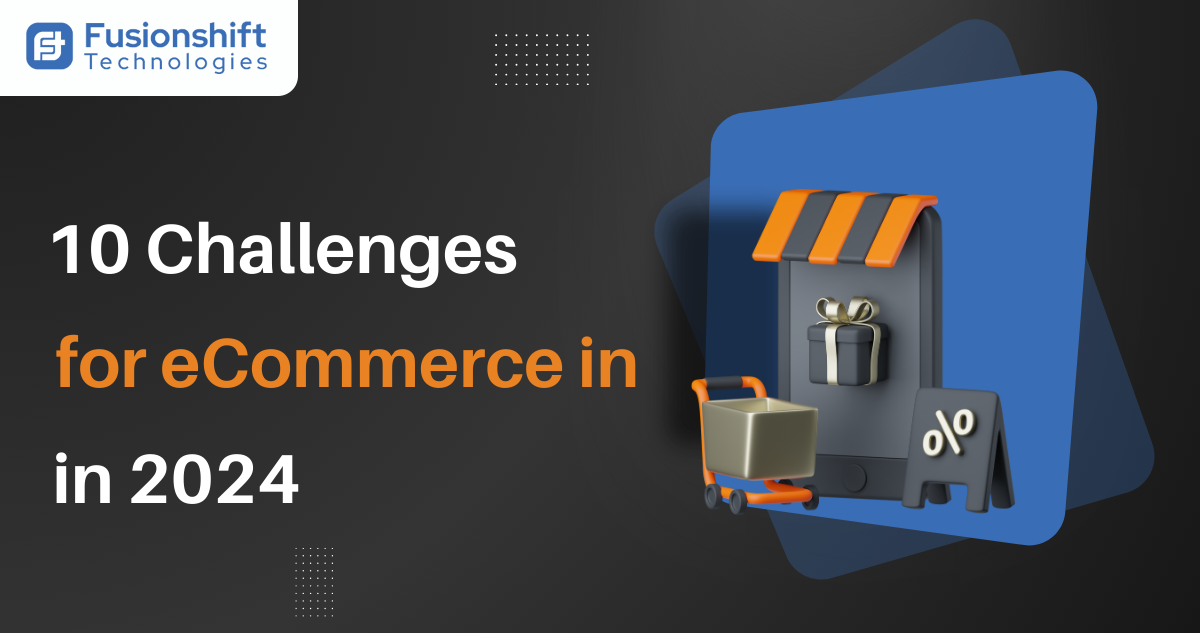10 Challenges for eCommerce in 2024
The e-commerce landscape is ever-evolving, and as we step into 2024, businesses need to anticipate and address the challenges that lie ahead. From technological advancements to shifting consumer behaviors, the e-commerce sector faces various hurdles. In this blog, we’ll explore ten challenges for eCommerce businesses will likely encounter in 2024.
Data Security Concerns:
As the volume of online transactions increases, so does the risk of cyber threats. E-commerce platforms must invest heavily in robust cybersecurity measures to protect sensitive customer information and maintain trust. Implementing advanced encryption technologies and regular security audits will mitigate these risks.
Personalization vs. Privacy:
While consumers increasingly demand personalized shopping experiences, there’s a fine line between customization and invading privacy. Striking the right balance between providing tailored recommendations and respecting customer privacy will be a delicate challenge for eCommerce businesses.
Supply Chain Disruptions:
Global events, such as pandemics and geopolitical issues, have highlighted the vulnerability of supply chains. E-commerce companies need to enhance their supply chain resilience, explore local sourcing options, and adopt technologies like blockchain to track and manage the flow of goods efficiently.
Evolving Customer Expectations:
Consumer expectations are ever-changing and driven by technological advancements. E-commerce businesses must stay ahead by adopting emerging technologies like augmented reality (AR) and virtual reality (VR) to enhance the online shopping experience. Additionally, offering faster and more sustainable shipping options will be critical.
Sustainability Challenges:
Consumers are becoming increasingly environmentally conscious, expecting the same from the businesses they engage with. E-commerce companies must reevaluate their packaging practices, reduce carbon footprints, and embrace sustainable practices to meet the growing demand for eco-friendly alternatives.
Competition and Market Saturation:
As the e-commerce market becomes more saturated, standing out from the competition becomes a considerable challenge. Brands must invest in innovative marketing strategies, unique product offerings, and exceptional customer service to differentiate themselves and capture market share.
Regulatory Compliance:
Governments worldwide are implementing stricter regulations on data protection, consumer rights, and taxation in the e-commerce sector. Compliance with these regulations is vital to avoid legal issues and maintain a positive reputation. E-commerce businesses must continuously monitor and adapt to changes in legislation.
Integration of Emerging Technologies:
Technological advancements such as artificial intelligence (AI), machine learning, and the Internet of Things (IoT) are reshaping the e-commerce landscape. Implementing these technologies seamlessly into existing platforms poses a challenge that businesses must overcome to stay competitive and offer cutting-edge services.
Rising Customer Acquisition Costs:
Acquiring new customers can be an expensive endeavor. E-commerce businesses must optimize their marketing strategies, leverage social media, and explore new channels to acquire customers more efficiently while maintaining a positive return on investment.
Adaptation to New Sales Channels:
The rise of social commerce, voice commerce, and other emerging sales channels presents opportunities and challenges. E-commerce businesses must adapt to these new platforms, understand their unique dynamics, and create strategies to effectively leverage them to expand their reach and engage with diverse audiences.
While the e-commerce industry holds immense growth potential, the challenges for eCommerce in 2024 are diverse and complex. Businesses that proactively address these challenges like FusionShift Technologies, embrace innovation, and prioritize customer satisfaction will be better positioned to thrive in the dynamic e-commerce landscape of the future.








